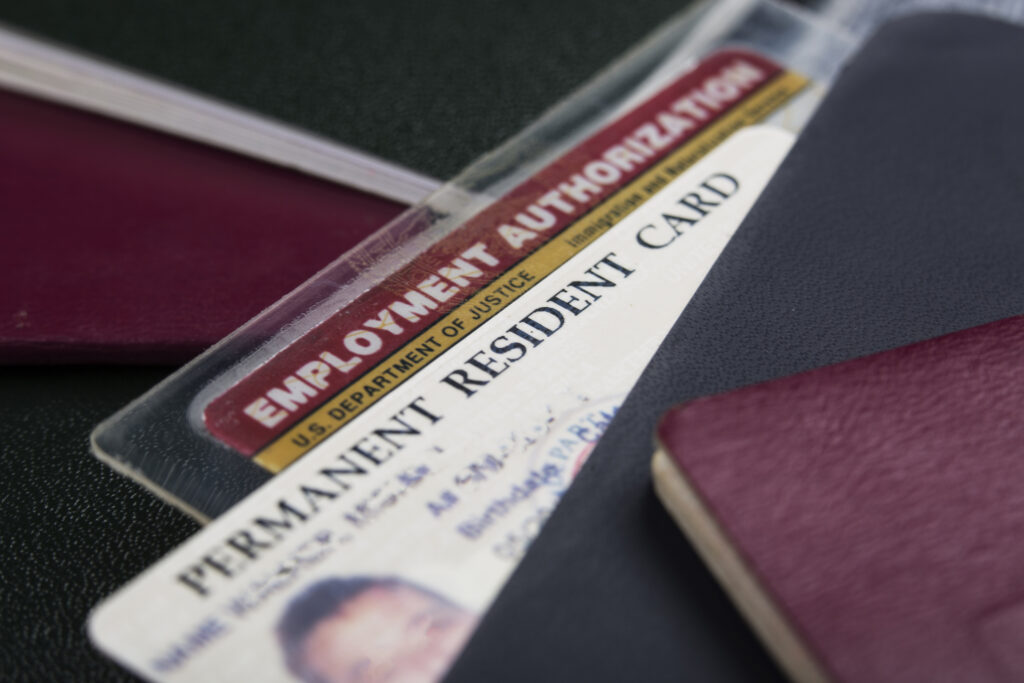Citizenship and immigration documentation
You have protections against discrimination.
Your employer must allow you to choose which valid documentation you will show to demonstrate that you’re allowed to work in the U.S. Your employer may not treat you differently in the process of verifying that you’re allowed to work in the U.S.
Employers cannot retaliate against or intimidate workers who complain of this type of discrimination. If an employer discriminates against you in one of these ways, you may be rehired, allowed to keep working, or get paid for time when you should have been allowed to work.
Discrimination can include requests for specific or extra documents to show you are allowed to work in the U.S. This type of discrimination often happens when you complete the Form I-9. For example, if you present your state-issued driver’s license or state-issued ID and unrestricted Social Security card, an employer cannot require you to produce your work permit or Permanent Resident Card.

Questions?
We’re here to help.
The Immigrant and Employee Rights Section (IER) of the U.S. Department of Justice is responsible for enforcing a Federal law that protects workers from employment discrimination based upon citizenship, immigration status, or national origin.
For additional assistance, please contact:
1-800-255-7688
Additional resources
- Employment Law Guide: General Information on Immigration, Including I-9 Forms
- IER Section of the Justice Department
- Immigrants’ Employment Rights Under Federal Anti-Discrimination Laws
- Employment Rights of Immigrants Under Federal Anti-Discrimination Laws
- U.S. Department of Labor Guidance on Immigration Discrimination
What this means for you
You can choose which of the acceptable Form I-9 documents to show to verify your employment eligibility.
Employers may not refuse to accept lawful documentation that establishes your employment eligibility, or demand additional documentation beyond what is legally required, when verifying employment eligibility (completing the Form I-9 or creating an E-Verify case), based on your national origin or citizenship status.
Examples of discrimination
In general, this means that you cannot be:
- told to show an “immigration” document,
- rejected for a job because you did not show a specific document that your employer prefers instead of the acceptable document you showed,
- asked for more documentation than the Form I-9 requires, or
- threatened or retaliated against for speaking up about an employer’s discriminatory document request based on your citizenship or immigration status.
Contact the Immigrant and Employee Rights Section (IER) of the U.S. Department of Justice if you have questions about whether you are protected from this type of discrimination.
The elaws (Employment Laws Assistance for Workers and Small Businesses) Advisors are a set of online tools developed by the U.S. Department of Labor to help employees and employers understand their rights and responsibilities under federal employment laws.
